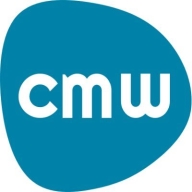

CMW Tracker and Temporal are competing in the workflow management and process automation category. Temporal has the upper hand in features and user satisfaction with its functionality, while CMW Tracker is more competitive in pricing and support.
Features: CMW Tracker provides extensive customization options, robust reporting tools, and a user-friendly interface. Temporal offers superior automation capabilities, advanced task orchestration, and reliable long-running workflow management.
Room for Improvement: CMW Tracker could enhance its automation depth, improve integration capabilities, and advance mobile support. Temporal needs to simplify its setup process, provide more user-friendly interfaces for non-developers, and expand its focus beyond developers to include comprehensive business user tools.
Ease of Deployment and Customer Service: CMW Tracker offers a straightforward deployment model with excellent customer support, appealing to those seeking ease of use. Temporal requires a more complex setup, involving a learning curve, but compensates with responsive technical assistance suited for intricate deployments.
Pricing and ROI: CMW Tracker presents competitive setup costs and rapid ROI, making it desirable for budget-conscious entities. Temporal requires a higher initial investment but promises a prolonged ROI through extensive process optimization, ideal for organizations focusing on long-term benefits.
The ROI is apparent in terms of business case automation; previously, a bunch of people filled in data in NetSuite or managed stocks between warehouses and Amazon, but now everything is automated, saving time.
The deployment process is quite straightforward as it provides both Kubernetes and Docker Compose versions, allowing us to run it in ECS containers.
| Product | Market Share (%) |
|---|---|
| Temporal | 5.9% |
| CMW Tracker | 1.1% |
| Other | 93.0% |
| Company Size | Count |
|---|---|
| Small Business | 7 |
| Midsize Enterprise | 4 |
| Large Enterprise | 3 |
| Company Size | Count |
|---|---|
| Small Business | 8 |
| Midsize Enterprise | 4 |
| Large Enterprise | 6 |
CMW Tracker offers a browser-accessible workflow management platform supporting low code development with features such as team collaboration and excellent customer service. Users value its affordability and ability to enhance transparency and standardize processes.
CMW Tracker streamlines project management by allowing non-technical users to create workflows, manage tasks, and synchronize tools efficiently. This platform emphasizes ease of deployment and modification, bringing transparency and clarity to processes while enabling workflow automation. Its user-friendly design, robust analytics, and cost-effectiveness make it a favored choice for organizations needing efficient workflow management.
What are the main features of CMW Tracker?CMW Tracker is widely implemented across industries requiring efficient workflow management, particularly in settings where collaboration and process transparency are critical. Organizations benefit from its ability to standardize operations, reduce IT dependency, and enhance service delivery by enabling seamless communication among dispersed team members working on joint projects.
Temporal automates and manages workflows efficiently, offering resilience in distributed systems with features like retry and fault tolerance. Its capabilities in handling complex workflows and integrating with programming languages make it a valuable tool for managing diverse business logic.
Temporal excels in workflow orchestration, automating tasks across multiple platforms, and ensuring durability in asynchronous operations. It supports long-running workflows and simplifies handling distributed transactions, reducing boilerplate code. Temporal is noted for its durable execution and built-in retry policies, enhancing resilience. Despite its complexity and steep learning curve, it is valued for its integration with popular programming languages and relatively easy setup process, though it requires improvements in user-friendly features, documentation, community support, and security.
What are Temporal's key features?Temporal is implemented in sectors requiring robust workflow orchestration, such as managing data pipelines, API integration, and scheduling tasks. Organizations in a Kubernetes environment leverage it for its scalability and infrastructure management capabilities, securing integrations and enhancing reliability across IT operations.
We monitor all Process Automation reviews to prevent fraudulent reviews and keep review quality high. We do not post reviews by company employees or direct competitors. We validate each review for authenticity via cross-reference with LinkedIn, and personal follow-up with the reviewer when necessary.